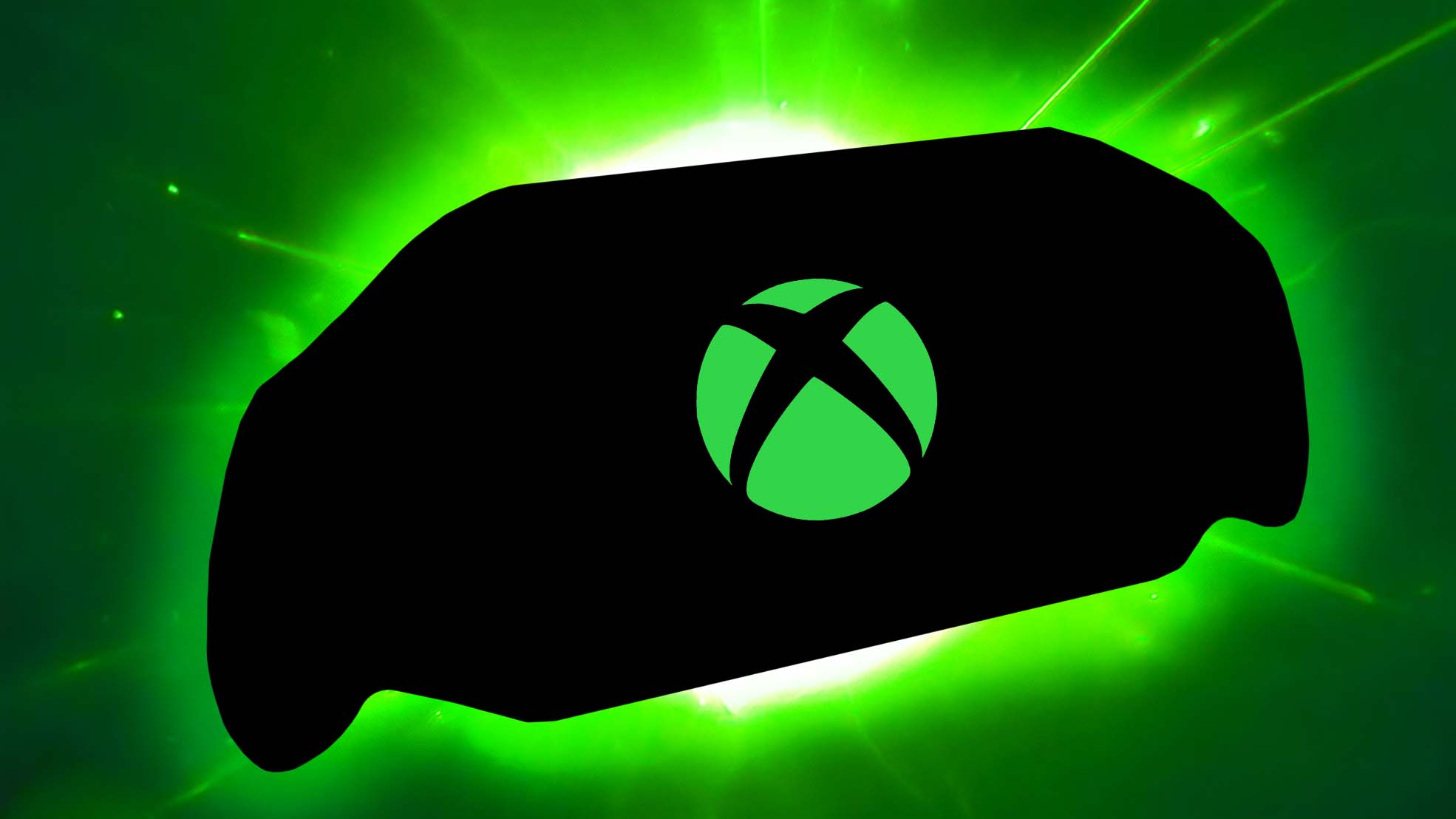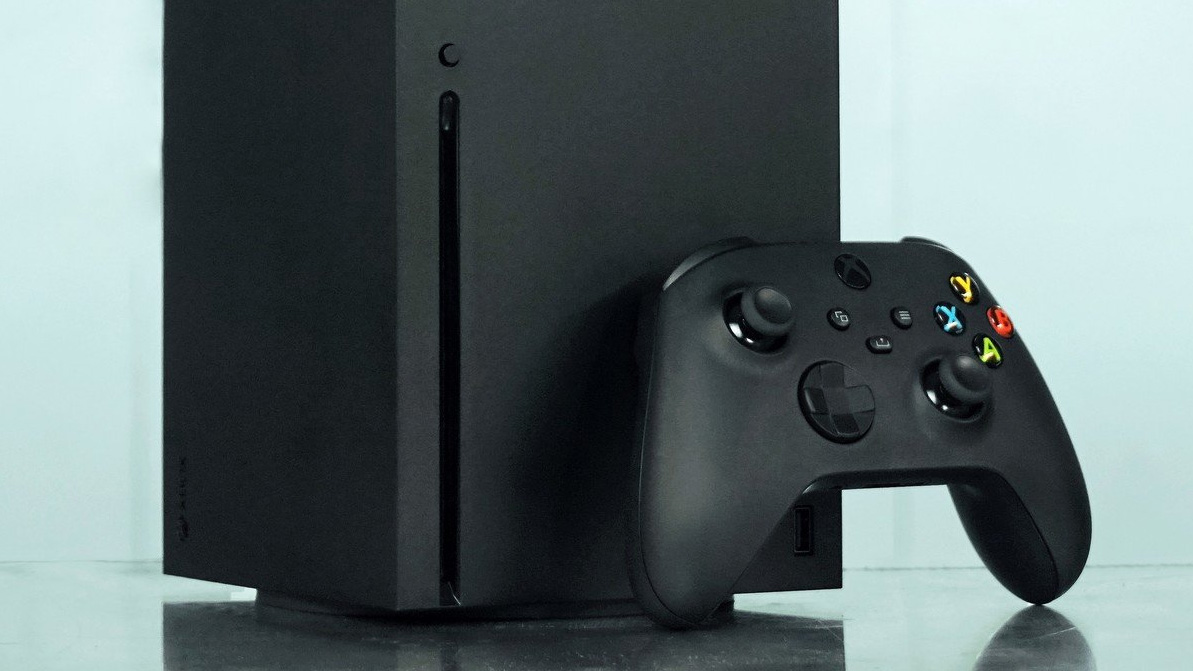"Longer term, I love us building devices, and I think our team could do some real innovative work." The Xbox handheld is real — but it's at least "several years out."
The Xbox handheld is being prototyped at Microsoft right now, per a new interview with Xbox CEO Phil Spencer.

All the latest news, reviews, and guides for Windows and Xbox diehards.
You are now subscribed
Your newsletter sign-up was successful
What you need to know
- Xbox lead Phil Spencer just had a new interview with Bloomberg, discussing a range of topics.
- Therein, they seemingly confirmed interest in building an Xbox handheld, something that has been rumored for quite some time.
- Noting that any product was "years away," Spencer said the firm wants to analyse and research what's already out there before moving to full deployment.
Over the past few quarters, Microsoft has endured significant year-over-year drops for its Xbox console hardware, namely the Xbox Series X and Xbox Series S. As the generation wanes, manufactures like Xbox and PlayStation especially are noticing that users are more than happy to remain on the previous generation. Games like Fortnite and even the recent Call of Duty: Black Ops 6 continue to hit previous gen consoles and remain fully updated, making the concept of generations a little blurry. Perhaps this is the real "smartphonification" of the console industry, by which games and services drive the revenue rather than the hardware generations. Users aren't rushing out to replace their smartphones either at the same cadence they used to, in a similar sort of fashion. But that doesn't mean Xbox is done building hardware, by any means.
In a new interview with Bloomberg, Xbox CEO Phil Spencer recently discussed the firm's plans for one of the most exciting categories in modern gaming today — gaming handhelds.
Since the advent of the Nintendo Switch, firms have sat up and noticed that gaming architecture has been efficient enough to provide an experience at least approximate to high-end gaming consoles. The Z1 Extreme found in devices like the ASUS ROG Ally and the Lenovo Legion Go is offering experiences on par with the PS4 and Xbox One in some cases, too. To that end, rumors have swirled that Xbox and PlayStation both are looking at bringing their console experiences to the handheld market, and we have some formal confirmation that Microsoft is now in the running.
RELATED: Phil Spencer confirms there's no "red lines" over what Xbox games will go multiplatform
In the interview, Spencer said that Microsoft was taking an analytical approach to handhelds for now, prototyping a variety of designs. "Longer term, I love us building devices. [...] And I think our team could do some real innovative work, but we want to be informed by learning and what’s happening now." Spencer also elaborated that any real-world product emerging from these explorations would be "several years out."
🎃The best early Black Friday deals🦃
- 💽Seagate Xbox Series X|S Card (2TB) | $199.99 at Best Buy (Save $160!)
- 💻Samsung Galaxy Book4 Edge (X Elite) | $849.99 at Best Buy (Save $500!)
- 📱iPad 9th Generation (64GB) | $199.99 at Best Buy (Save $130!)
- 🖥️ABS Cyclone Desktop (RTX 4060) | $1,099.99 at Newegg (Save $400!)
- 💻HP Victus 15.6-inch (Radeon 6550M) | $429.99 at Best Buy (Save $370!)
- 📺LG OLED Curved Ultrawide (32-inches) | $892.74 at Amazon (Save $607!)
- 💻Alienware x16 R2 (RTX 4070) | $1,999.99 at Best Buy (Save $700!)
- 📺HP Curved Ultrawide (34-inches) | $299.99 at Best Buy (Save $180!)
- 💻Dell G16 Laptop (RTX 4060) | $1,199.99 at Best Buy (Save $400!)
- 📺LG C4 OLED 4K TV (42-inches) | $899.99 at Best Buy (Save $250!)
It seems we'll be waiting a fair while to play our Xbox games natively in our hands

- Best Xbox headsets to get in 2024
- Best upcoming Xbox games
- Best gaming laptops in 2024
- Best Xbox controller deals
- Best Xbox hard drives
- Best Xbox SSDs
Xbox has some serious momentum heading into 2025, with successful titles like Call of Duty: Black Ops 6, sure-fire hits like STALKER 2, and big Xbox Game Pass partnerships with Genshin Impact offering a strong end to the year. Microsoft has also cut the price of the Xbox Series X by $50 for the holiday season, and will likely shift a ton of stock as people pick up goodies for Black Friday and Christmas.
Xbox's general trend of quarterly sales declines for its console hardware is unlikely to change until it releases new boxes, though. I doubt the new Xbox Series X "Digital Edition" is going to ignite a big sales rush. PlayStation has solidified itself as the default console to buy globally, as Xbox's pitch to consumers outside of its typical user base seemingly falling flat. Microsoft has begun exploring putting its Xbox games onto PlayStation in response, while also thinking about how devices like a handheld might help it reach new players. Microsoft's own mobile game store efforts have hit various hurdles, compounded by the fact Apple and Google simply don't want it to exist.
All the latest news, reviews, and guides for Windows and Xbox diehards.
RELATED: Why an Xbox handheld is inevitable
It's a bit of a shame to hear the Xbox handheld, whatever it'll be called, won't be with us for "several years," but at least it's almost certainly on the way — I believe firmly that it'll be key to Xbox's future, too.

Jez Corden is the Executive Editor at Windows Central, focusing primarily on all things Xbox and gaming. Jez is known for breaking exclusive news and analysis as relates to the Microsoft ecosystem — while being powered by tea. Follow on X.com/JezCorden and tune in to the XB2 Podcast, all about, you guessed it, Xbox!
